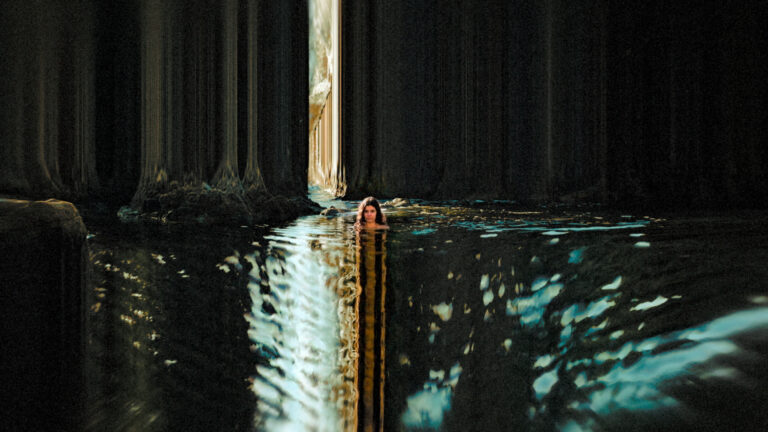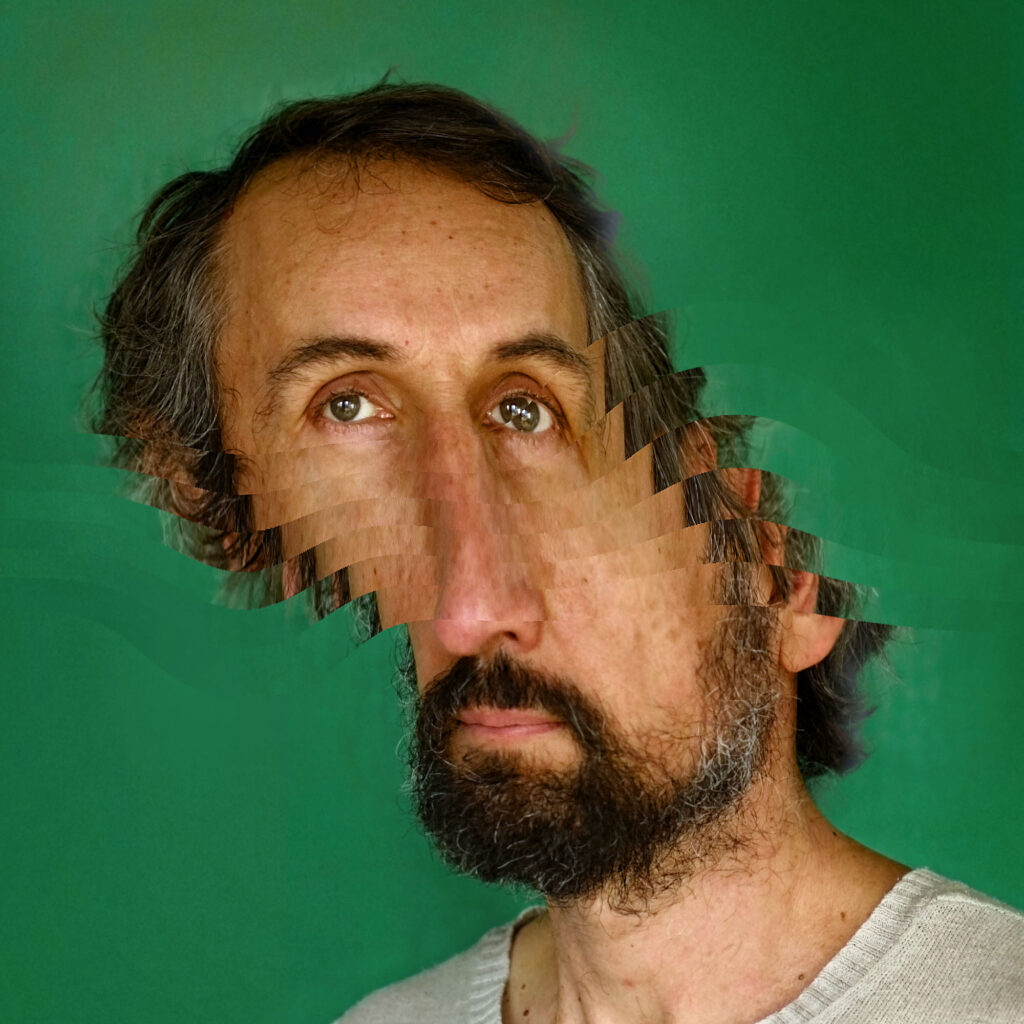
Thursday, March 13 – Sunday, March 30
La salamandra
François Vogel
Room Gilbert-Gaillard, 2 rue Saint Pierre
Opening hours:
Tuesday to Saturday, 1pm to 7pm
Sunday from 2pm to 6pm
Free access
This post is also available in: Français (French)

Thursday, March 13 – Sunday, March 30
Opening hours:
Tuesday to Saturday, 1pm to 7pm
Sunday from 2pm to 6pm
Free access
« La Salamandra », the title of an album by the Catalan duo “L’Arannà”, is inspired by the poems of Mercè Rodoreda, which form the very foundation of this artistic project. Here is an excerpt from one of these poems:
“And so, I reached a strange place:
Full of colors that were not colors,
A fire different from fire, an illusion.
I saw things I had seen before,
But from such a different place.”
The poems were transformed into music and songs by the two composers, Lara and Anna, who make up the duo “L’Arannà”. The artist François Vogel enhanced these musical creations by bringing them to life in a series of captivating videos. These videos reveal a strange and dreamlike universe where the singers appear in altered and distorted worlds:
A sea transforms into a waterfall (La meva Cristina);
A piano stretches under the musicians’ fingers (Jardí Vora el Mar);
Their bodies multiply and distort in the darkness (Flor Negra);
A witch is consumed by tentacle-like hands (La Salamandra);
Flowers glide gently over their eyes (Flor Vergonya).
This series of videos immerses us in a visual and auditory universe that is both poetic and evocative, where each image invites reflection on beauty, strangeness, and imagination.
François Vogel began his studies in the sciences before shifting his focus to art, driven by his passion for drawing and photography. He continued his education at the French school of Arts Décoratifs, graduating from the video art department in 1992.
In the early 1990s, he collaborated on visual effects for films. Gaining international recognition, he was sought after as a director by numerous production companies in the United States, thanks to his talent for crafting poetic worlds and inventing innovative visual effects techniques.
In parallel, he developed an eclectic artistic practice in the field of visual arts, which he showcased at various international festivals. His works, including photographs, experimental films, and interactive installations, have been exhibited and presented in cultural institutions in France and abroad. They are also part of the collections of national museums and private collections, such as the Centre des Arts d’Enghien-les-Bains, the Musée des Beaux-Arts et d’Archéologie Joseph Déchelette, the Villa Balthazar in Valence, Yuki Terrace in Sapporo, and Soho House in Los Angeles.
His artistic work explores notions of spatial and spatiotemporal distortion by combining bold optical captures with digital tools, resulting in surrealist creations. His empirical approach playfully and poetically examines the connections between individuals, their environment, and the passage of time.
Artiste’s website: https://francoisvogel.com/fr

Interview by Fanny Bauguil (VIDEOFORMES relay teacher)
The work presented here is more akin to a projection than an installation in the classical sense. It’s a series of music videos resulting from a collaboration between my visual exploration of image distortion and the compositions of the Catalan duo L’Arannà. On screen, we discover the two musicians singing, dancing and playing, staged in varied, poetic universes. The songs they perform are inspired by the poems of Catalan author Mercè Rodoreda, blending their melodies with the power of words.
The poems that inspired the music and images explore themes linked to nature and emblematic figures: flowers (“Flor Negra”, “Flor Vergonya”), a witch (“La Salamandra”), a whale (“La meva Cristina”), or a gardener (“Jardí Vora el Mar”). Mercè Rodoreda’s unique, vibrant prose conveys deep emotions and evocative sensations. My visual work extends these impressions, translating this intensity into plastic experiments and games of distortion.
These videos have already been partially unveiled at concerts or broadcast in fragments on social networks. However, this is the first time they’ve been given a proper, dedicated projection, offering them a space for contemplation in their own right.
The project began when the duo L’Arannà asked me to put the tracks from their album “La Salamandra” into images. I liked their project and their spirit. I went to Catalonia to film them in a variety of contexts and settings. I then worked on the sequences in depth using digital techniques, integrating visual and spatiotemporal distortions to breathe a singular dimension into these videos.
All the images produced in these videos are digitally processed after shooting. It’s a lot of post-production work that I do on my own. Producing this type of image for an entire music album is a challenge in terms of time. We chose to reuse some sequences by looping them.
Instagram: www.instagram.com/francois.vogel/
My website: www.francoisvogel.com/
Tiktok : www.tiktok.com/@francois.vogel
Poetry
Music
distortion
flowers
nature
Catalonia
Mercè Rodoreda
L’Arannà
My artistic journey began as a child when I was drawing and observing the distorted reflections of Christmas baubles and chrome faucets. I went on to study art at Arts Déco (ENSAD).
I grew up with the arrival of personal computers. In the 1980s, my parents had a Thomson TO7, on which I wrote my first programs to generate images. With their Super 8 camera, I also experimented with frame-by-frame filming. As a teenager, I made my first digital films by combining these two passions.
I earn my living mainly by making commissioned films and commercials. It’s a job I’ve always been able to combine with my personal work. It’s a great opportunity because it’s always allowed me to finance my personal work in complete freedom, without ever having to justify my creative choices. At times, my personal work has also earned me a little money, in the form of distribution by the short film agency or broadcasting on TV channels, and also in the form of purchases of NFT digital works. I’ve also been lucky enough to take part in a number of artists’ residencies, which have enabled me to create personal works while being paid and supported in my work. These have been my most rewarding experiences. Feeling supported in your creative process is invaluable for an artist.